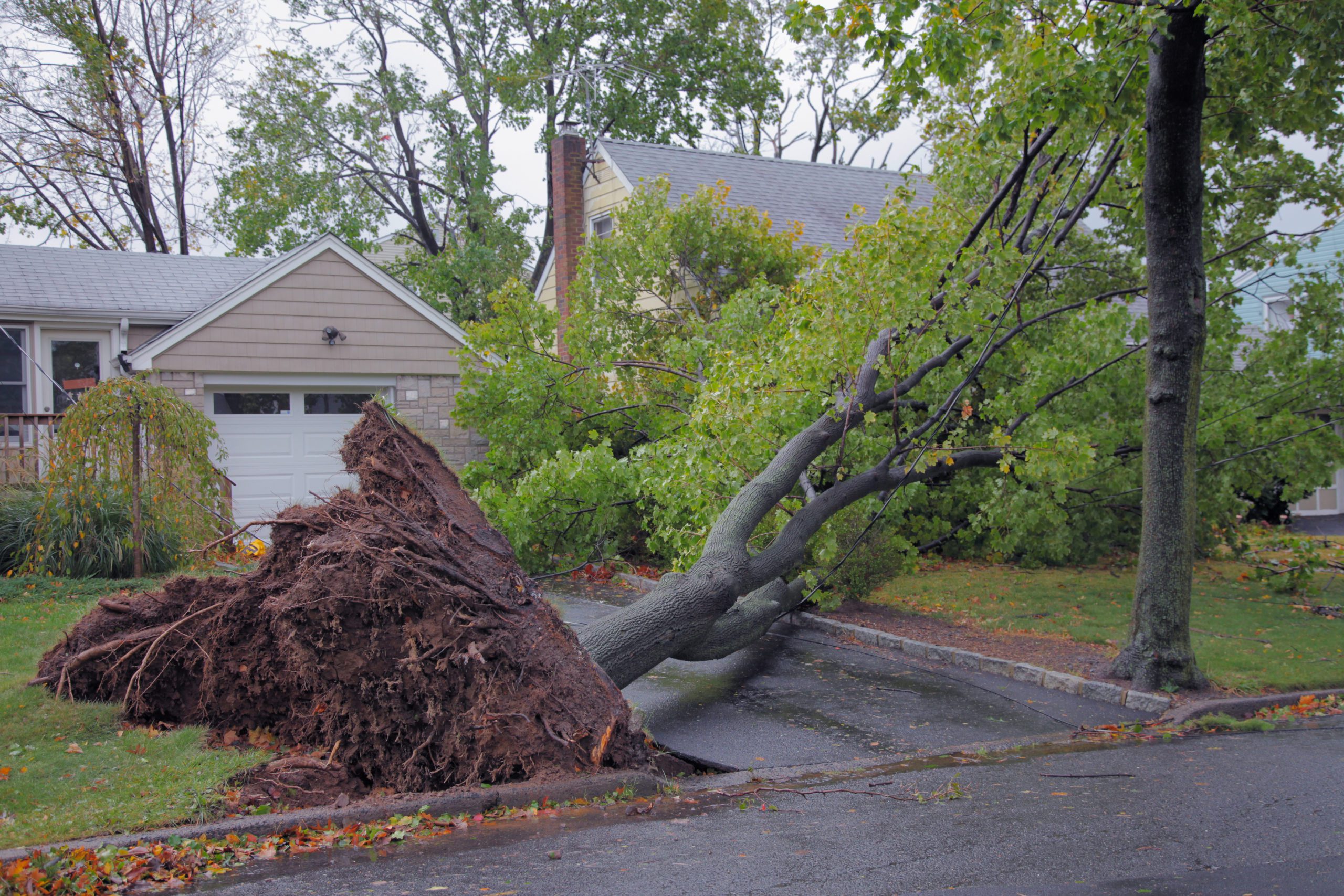
If a tree falls in the woods, and no one’s around to hear it, does it make a sound? We may never know about that, but you’ll certainly want to know who is responsible when a neighbors tree falls on your property.
When a tree falls, it is almost always going to be the responsibility of the property owner where the tree landed to remove it. They will also be the ones to pay for any damage that the tree caused, regardless of who actually owns the tree.
An exception to this is if there is prior notice that the tree is damaged or diseased. In some cases, the insurance carrier will go out and see that the tree was diseased and determine that the tree owner should have known about it and place responsibility on them.
For example, if my healthy tree falls onto your house or yard during a wind storm, then it is going to be your responsibility to pay for damages it caused to your property and tree removal. Your personal insurance policy should have coverage included in it for tree removal. On the other hand, if there is prior notice that the tree is damaged or diseased, then when my tree falls, it will be my responsibility.
If a tree falls and doesn’t damage anything, there is most likely not any coverage.
Most often, the cause of trees coming down is due to heavy wind. Wind can be excluded on policies or have a separate higher deductible. Unless the fallen tree was struck by lightning, it should be your regular property deductible.
If you and your neighbors find yourselves with fallen trees, it’s best to contact your broker as soon as you can and let them advise you. Be sure to collect any information that you can and take pictures if it’s safe to do so. Never climb onto a fallen tree, or get too close to the area if more damage could be coming soon. If a tree on your property, or a neighboring property, looks like it is about to fall, call your town and report it as soon as you notice it.
As always, it’s important to remember that every policy is different. If you have questions about fallen trees, please contact us.

